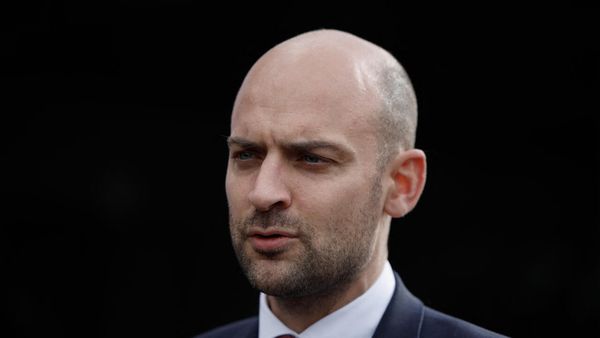-Ali-wright.jpg?width=1200&auto=webp)
Susanna’s Secret sounds like the name of an emporium selling racy underwear but say it in Italian – Il Segreto di Susanna – and it acquires an air of mystery.
In Ermanno Wolf-Ferrari’s 1909 opera, the secret isn’t, in fact, all that racy. Spoiler alert: Susanna’s secret isn’t that she’s having an affair, as her husband suspects, but that she likes the occasional cigarette.
To the composer’s credit, he doesn’t overwork this slender premise. The opera lasts barely 50 minutes and has only two singing characters: Countess Susanna and her untrusting husband, Count Gil. They are joined by Sante, a servant, a silent role taken here by John Savournin, who misses no opportunity to pull out his best Basil Fawlty moves.
Short Il Segreto may be, but John Wilkie’s 2019 Opera Holland Park production can’t quite dispel the feeling that it goes on rather too long. The immensely wide performing space becomes a hindrance, even if the tiny cast does all it can to fill it.
As the hubby, Richard Burkhard has a big voice to back up his emphatic acting, while Clare Presland makes Susanna a credible figure, her tone bright and clear, not least in a moving paean to cigarette smoke as it curls heavenwards.
Orchestrally, City of London Sinfonia, conducted by John Andrews, is light on its feet, as Wolf-Ferrari demands.
.jpg)
The mood shifts drastically in this double bill’s second half. Leoncavallo’s Pagliacci (the word means “clowns”) is central to the Italian operatic tradition known as verismo.
First performed in 1892, Pagliacci seeks to scuff up opera’s habitual glamour by serving us a slice of life’s dark side, while cleverly making the most of the idea of a play within a play. A travelling troupe arrives in a small town to give its show.
All is not well backstage, as Canio, the troupe leader, suspects that his wife Nedda is having an affair with another actor. In fact, she’s torn between, not two, but three lovers. Rest assured, there will be blood.
Martin Lloyd-Evans’ new staging, drawing on Italian neorealism, makes the most of all the meta but not at the expense of the plot’s brutal energy, which is matched by the music.
While Lloyd-Evans’ puts the width of the stage to good use with his large and busy chorus, the eye can’t tear itself away from the principals, brought to pulsating life by five fine singers giving their all.
At the opera’s centre are Alison Langer’s Nedda, sparky and vulnerable in equal measure, and David Butt Philip’s Canio, at times frighteningly intense – and loud – but also winningly lyrical when required. The orchestra, spurred on by conductor Francesco Cilluffo, follows them all the way.







